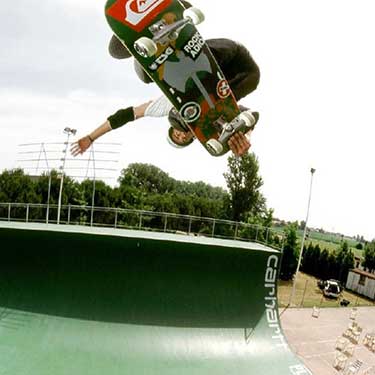
The Six Principles of Mental Mobility
We know that actively moving our bodies through different ranges of motion can increase our physical mobility. Yet have you ever given much thought to how these movement improvements can have a profound impact on your mind?
‘Mental mobility’ is a term I use to group together six principles that form the basis of a strong mindset. I came to the term gradually, after noticing that the movement journey I was on seemed to be responsible for a number of changes that were occurring in other areas of my life.
I had read books in search of answers for what I was experiencing but nothing seemed to pull the concept together in a way that really resonated with me. Stumbling onto the idea of mental mobility has helped me further define and share the concept.
In order to understand mental mobility it can be helpful to first look at it through the lens of physical mobility. Mobility typically refers to the ability to move, or be moved, freely and easily. In Animal Flow, we extend that definition further so that mobility refers to our capacity to express strength and control throughout all ranges of motion.
So, if physical mobility is about having control and freedom of movement, mental mobility could be explained as having control and freedom over our mindset.
Six Principles of Mental Mobility
I have created six principles which define mental mobility and will give you a framework for understanding what it means and how it can be experienced in life.

AF Master Instructor Sascha Mueller was continually learning from mistakes to improve his performance during his time as a professional skateboarder.
Principle 1: Fail forward
‘Failing forward’ is the ability to fail without loss of enthusiasm, which is also known as resilience or perseverance. It’s fair to say that failure is a part of life but it’s how we react to failure that ultimately determines our levels of success. In my book, Build Your Legacy, I discuss that we learn more from our mistakes than we do our successes. In fact, I encourage people to fail early and often. This ensures that we are always learning and growing which are two important components in mental mobility.
Principle 2: Adapt to stress and thrive through confidence
Our bodies are made to adapt to whatever stress we place them under. This same principle holds true for our minds. As we learn, struggle and grow, we gain an ability to deal with more stressful situations. Through these scenarios we build confidence, and it’s that confidence that allows us to be anywhere and still be ourselves. We gain an iron-clad sense of self that transcends space and time, and allows us to be ourselves. Bringing our authentic self to any environment will help change the temperature of any room, making those around us more likely to be themselves. Therefore no matter where we are or who we’re with we’re able to thrive – because we always know who we are.

Master Instructor Ago Celia, an avid mountaineer and ice climber, is well adapted to dealing with stress and changing environments.
Principle 3: Change your mind
Life is a continuous one-way street, with no turning back or changing what has been. We’ll experience new information and environments while knowledge from our past shapes the way we interpret these new experiences helping us to make wiser choices. It’s almost like a continuous dance of learning new things, applying them to our lives, and seeing what works and what doesn’t. If we have a high degree of mental mobility we’ll keep the things that work for us and discard anything that doesn’t serve the people we want to be. This approach helps us grow and change because, unfortunately, there is no parking on the highway of life. Those that stay stagnant find themselves equipped for a world that no longer exists.
Principle 4: Harness emotion positively
Struggle and failure are parts of life. Our response to these challenges will determine our success. Hard times can make us feel angry, frustrated and inadequate. Emotions are a part of life and we can’t ignore them or try to just suppress them. We have a few options when we feel these emotions. We can allow them to drag us down or hold us back from what we want to accomplish. Or, we can try and channel these emotions and use them as fuel to power towards our goals or dreams. Mental mobility is not about ignoring how you feel, it’s about accepting the feeling as real and looking for ways to use it for good. We can’t run from who we are and what we feel but we can use what we feel to our advantage.

“I always make time to reflect, write what I’m feeling and try to connect the dots.”
Principle 5: See opportunity in adversity
While feelings and emotions can often hold us back, sometimes you may have tangible adversity. Perhaps you didn’t have access to education, money, or knowledge, or another roadblock has gotten in your way. For many people this would be the end of their journey to achieve the things they want. They would say they ‘tried’ and it just didn’t work out for them.
Being mentally mobile means that you know that each door closed means a window opens up somewhere else. This is where being resourceful and creative comes to your aid. It’s now up to you to create a way to get it done or find a way around the adversity. The beauty of tapping into this energy within is that you may just create a whole new field, genre, or practice. Living this principle is what helps us as a collective to push forward and become bigger than ourselves. By creating your own path, you blaze a trail, and in doing so you show those following you what is possible.
Principle 6: Connect the dots
Everything we do in life affects us in some way. Throughout my Animal Flow journey I have discovered that the new movements, language and community have changed me for the better. It has led me to discover and define these principles that you have just read. I was not looking to change my mindset when I started my movement journey: it happened as a by-product of increasing my movement capacity. I was not looking to travel the world and meet people from different countries: it happened as a by-product of adopting this program and devoting time to getting better at the craft.
While developing my abilities at Animal Flow I learned a great deal about myself and it opened a world of new opportunities. That same work ethic enabled me to grow my business and write a book. The point here is this: nothing we do happens in isolation. Every decision we make, everything we learn, and each environment we choose will affect the people we become. We have to be very cautious of the stimuli we surround ourselves with each day because it is shaping not only ourselves but also our future.
Create your own story
I hope this article can inspire you to adopt these principles into your life. We are dynamic beings with unlimited potential, however many of us are living static lives because of our limiting belief systems. I believe that through physical movement we can unlock some of this potential and expand our worlds beyond our wildest dreams. This is what the practice of Animal Flow did for me and I hope it can do the same for you. You have the power to create your story and build your legacy.
Master Instructor Chris ‘Flo’ Flores is the author of Build Your Legacy: 18 Principles to Help You Create and Maintain A Lasting Legacy which is available from Amazon in Kindle and paperback versions.
